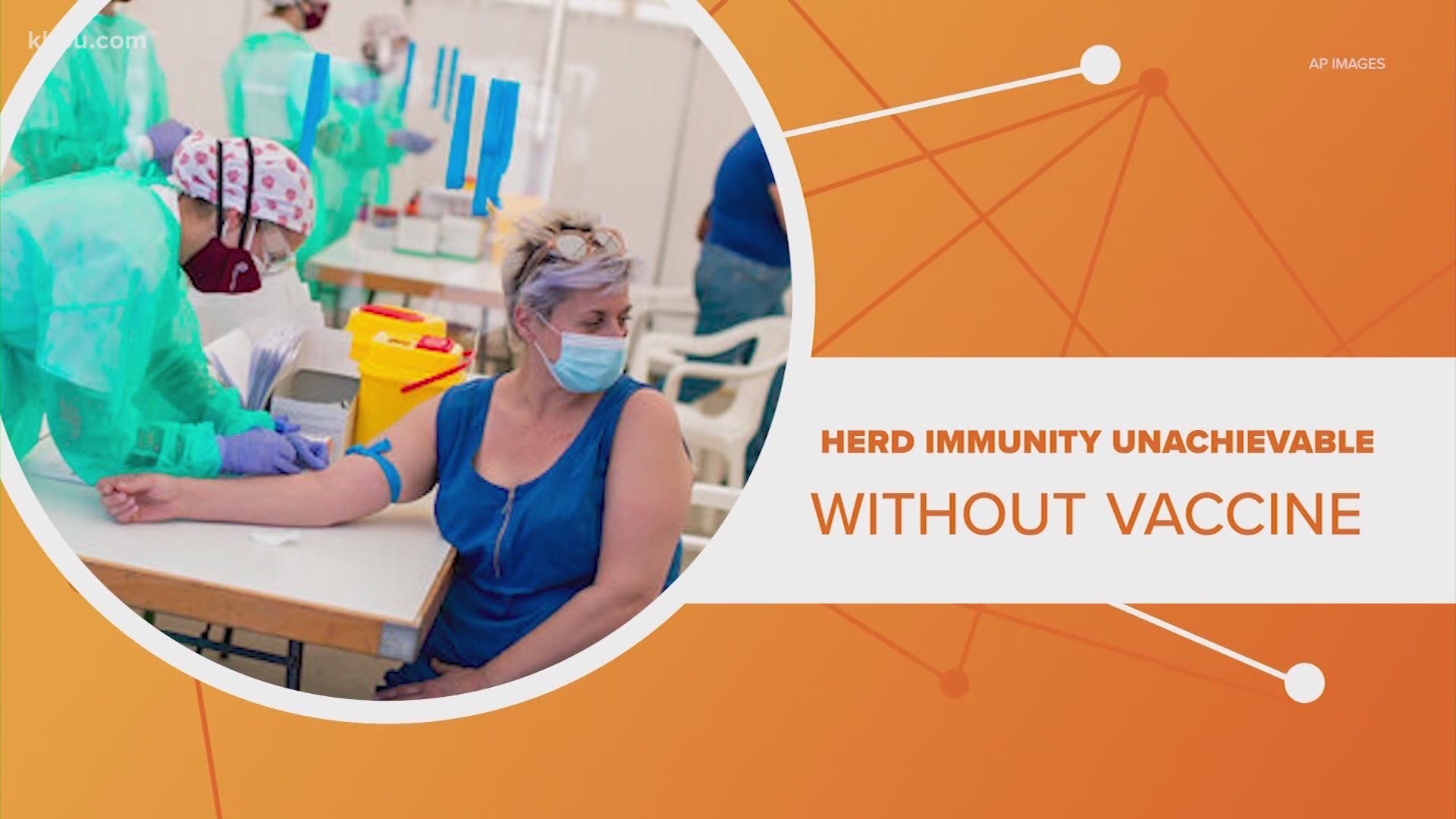A new study looked at herd immunity when it comes to coronavirus, and the news is not good for anyone hoping to put this pandemic behind us before a vaccine is rolled out.
Let’s connect the dots.
Herd immunity is when enough of a population is exposed to an infectious disease that the disease has trouble spreading. Vaccines are one of the best ways to achieve herd immunity, but some researchers were hoping we could reach that level with COVID-19 before a vaccine was ready. Sweden based its entire response to the pandemic based on that idea.
Now researchers in Spain have released the results of their large scale study of coronavirus antibodies. The country was hit hard and fast when COVID-19 reached Europe. The researchers found only 5 percent of the country’s population showed signs of those antibodies— far to low a number to reach herd immunity. Doctors think that number needs to be closer to 60 percent to be successful.
In the findings published in the medical journal The Lancet, the researchers called achieving herd immunity unachievable. There is another problem as well; doctors still don’t know for sure if having COVID-19 antibodies means you can’t get infected again. As for Sweden, which gambled on herd immunity, it saw a much higher death rate from coronavirus then other countries that used a lockdown approach.
MORE CONNECT THE DOTS

